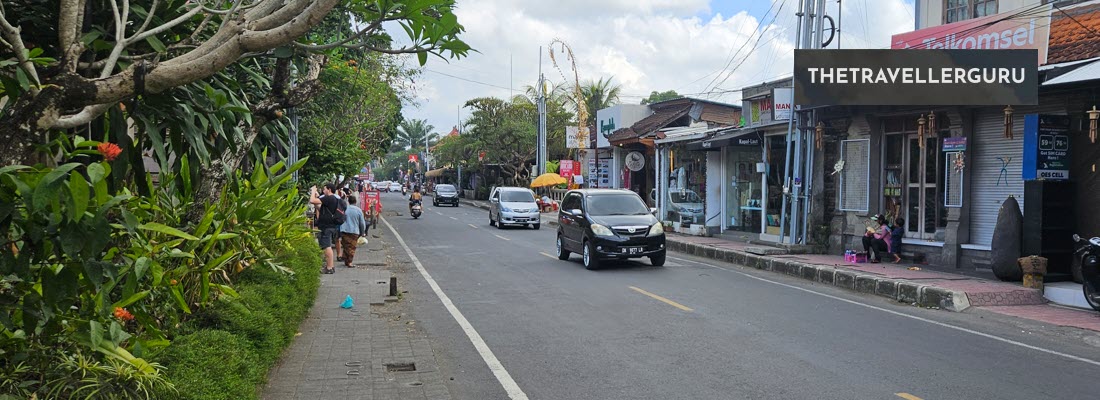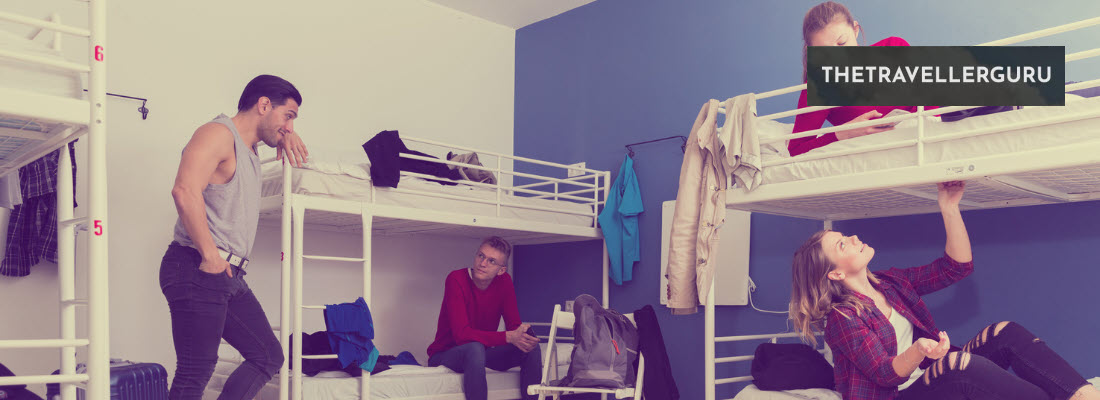Hey there travel enthusiasts and welcome to my post where we will run though my 5 tips for choosing AirBNB accommodation this year. When it comes to choosing accommodation for your next trip, Airbnb is a popular option for many travelers.
With a wide variety of styles, locations, and budget options, it can be overwhelming to choose the perfect Airbnb for your needs. However, with a few tips and tricks, you can ensure that you find the ideal accommodation for your trip.
- Choose the Right Location
- Decipher Listings and Reviews
- Check Reviews
- Plan Budgets and Costs
- Host Bevavior and Requirements
Tips for Choosing AirBNB Accommodation
When it comes to booking an Airbnb, there are a few things to keep in mind to make sure you get the most out of your stay. Here are some tips to help you navigate the booking process:
1. Choose the Right Location
One of the most important decisions you’ll make when booking an Airbnb is choosing the right location. Consider the purpose of your trip and what you want to do while you’re there. Do you want to be in the heart of the city or would you prefer a quieter neighborhood?
Look at the map and make sure the location is convenient for your needs, whether that’s proximity to public transportation or restaurants.
Check out my post: Hotel or Airbnb
2. Decipher Listings and Reviews
When looking at listings, pay attention to the description and photos. Make sure the listing accurately reflects what you’re looking for and check for any hidden fees or rules. Don’t forget to read the reviews and feedback from previous guests. This can give you a good idea of the accuracy of the listing and the quality of the host.
When navigating Airbnb listings and reviews, it’s important to approach them with a discerning eye. Here are some tips to help you decipher listings and reviews effectively:
- Photos: Carefully examine the photos. Look for consistency and clarity. If photos are scarce or low quality, it might be a red flag.
- Description: Read the description thoroughly. Look for detailed information about the space, amenities and any house rules. Vague descriptions can be a warning sign.
- Amenities: Check the amenities list carefully. Ensure that essentials (like Wi-Fi, kitchen, etc.) are included if they are important for your stay.
- Location: Research the location. It’s not just about proximity to attractions, but also safety, accessibility and neighborhood vibe.
- Host Profile: Look at the host’s profile. A verified, well-reviewed host is generally more reliable. Check their response rate and style of communication.
- Pricing: Compare the price with similar listings in the area. Unusually low prices might indicate a compromise in quality or location.
- Cancellation Policy: Understand the cancellation policy. A strict policy might be risky if your plans are not concrete.
- House Rules: Pay attention to the house rules. Make sure you are comfortable with them.

3. Check Reviews
When it comes to deciphering reviews on Airbnb, it’s crucial to adopt a comprehensive approach. Start by considering both the quantity and quality of reviews. A listing with numerous positive reviews typically indicates reliability, but it’s important to read through a range of reviews for a well-rounded understanding.
Pay special attention to the most recent reviews, as they are more reflective of the current condition of the accommodation. Specific comments here can be particularly telling, especially around aspects like cleanliness, communication with the host and the state of amenities offer valuable insights.
Also, take note of how the host responds to negative feedback. A host who addresses criticism constructively and professionally demonstrates responsibility and a commitment to improving the guest experience.
Recurring themes in reviews are also telling. If multiple guests mention the same issue, such as noise levels or cleanliness problems, it’s likely a consistent concern as where there is smoke, there is usually fire.
All that said, it is important to remember that while reviews are a valuable resource in evaluating an Airbnb listing, they should be considered alongside your own research and instincts to make the best choice for your stay.
4. Plan Budgets and Costs
One of the biggest issues I have always found with AirBNB are the add on and at times, hidden costs. So before booking, make sure you have a clear understanding of the costs involved. This includes the nightly rate, any fees (such as cleaning fees) and the cancellation policy.
Consider your budget and look for ways to save money, such as booking a new listing or taking advantage of discounts. Here’s an outline of some of the costs to look for with AirBNB:
- Service Fees: Airbnb charges a service fee to both guests and hosts. For guests, this fee is typically under 15% of the booking subtotal and can vary based on the details of the reservation.
- Cleaning Fees: Many hosts charge a cleaning fee to cover the cost of cleaning their space after your stay. This fee can vary greatly depending on the size and location of the listing.
- Extra Guest Fees: Some listings charge additional fees for guests beyond a certain number. Always check the pricing details if you’re planning to stay with more than one person.
- Security Deposit: Some hosts require a security deposit to cover potential damages. This amount isn’t usually charged upfront but could be charged up to a certain amount if the host claims damages.
- Local Taxes: Depending on the location, you might be required to pay local taxes. These taxes are sometimes included in the displayed rate, but in other cases, they might be added at checkout.
- Utility Fees: In some long-term rentals, guests might be responsible for paying utility fees like electricity, water or internet, especially for stays longer than a month.
- Currency Conversion Fees: If you’re booking in a currency different from your payment method’s currency, Airbnb might charge a currency conversion fee.
- Cancellation Fees: Depending on the host’s cancellation policy, you might be charged a fee if you cancel after a certain period.
- Internet Charges: While many listings include free Wi-Fi, some might charge extra for internet access, especially if it’s a high-speed connection or unlimited usage.
- Parking Fees: If you’re driving, check if the listing includes free parking. If not, you might have to pay for parking either at the property or nearby.
- Resort Fees: In some cases, especially in apartments or condos in resort areas, there might be additional resort fees for amenities like pools, gyms or recreational areas.
- Pet Fees: If you’re bringing a pet, some hosts might charge an extra fee for your furry friend.
- Late Check-In/Check-Out Fees: Some hosts might charge extra for checking in late at night or checking out later than the specified time.
- Amenity Fees: For certain luxuries or special amenities like a hot tub, sauna or a boat dock, there might be additional fees.
To avoid surprises, it’s always a good idea to thoroughly read the listing details, the house rules and the cancellation policy. Also, don’t hesitate to ask the host any questions before booking to clarify potential additional costs.

5. Host Bevavior and Requirements
And finally, when it comes to choosing an Airbnb accommodation, the host plays a crucial role in ensuring a comfortable and enjoyable stay. One of the benefits of Airbnb is the ability to communicate directly with the host so before booking, it’s a good idea to message the host with any questions or concerns you may have.
This can help you get a better sense of the host’s communication style and responsiveness and if they are slow to respond or unhelpful, it may be a red flag.
Host Responsibilities
We recently had an AirBNB reservation cancelled after the host received one too many complaints from previous bookings meaning AirBNB checks and monitors them quite carefully. To keep their property active, hosts then have certain responsibilities to ensure the safety and comfort of their guests including providing a clean and tidy space as well as ensuring that safety features such as smoke detectors and fire extinguishers are in place.
They are also expected to be responsive to questions and provide relevant information in regards to your stay. And once they are able to build a reputation with Airbnb, they can become a super host. Super hosts are Airbnb hosts who have consistently received high ratings from guests and while this is not a guarantee of a perfect stay, it can provide additional peace of mind.
House Rules
One final check here is the house rukes set out by the host. These rules are crucial for ensuring that both guests and hosts have a clear understanding of what is expected, which helps in maintaining a respectful and enjoyable experience for both parties.
Here’s a general overview of what Airbnb house rules might include:
- Check-In and Check-Out Times: Hosts will specify the times by which guests should check in and out. Adhering to these times is important for the host’s scheduling, especially for cleaning and preparing the space for the next guests.
- Smoking Policy: Many Airbnb listings are non-smoking. Hosts will specify whether smoking is allowed and, if so, where it’s permissible (e.g., outside only).
- Pet Policy: Some hosts allow pets, while others do not. For listings that are pet-friendly, there may be specific rules regarding the types of pets allowed, areas where pets can go and any expected pet etiquette.
- Noise and Quiet Hours: Hosts often set quiet hours to ensure that guests do not disturb neighbors or other guests. This is particularly important in shared spaces or apartment buildings.
- Number of Guests: Hosts will specify the maximum number of guests allowed. This is to ensure the accommodation is not overcrowded and is used as intended.
- Parties and Events: Many hosts prohibit parties and events to prevent noise disturbances and potential damage. This rule is especially enforced in residential areas.
- Parking: If parking is available, the host will provide instructions on where guests can park. In cases where parking is limited or paid, this information will be clearly stated.
- Use of Amenities: If the property includes amenities like a pool, hot tub, gym or kitchen, the host may provide specific rules for their use.
- Safety and Security: Hosts may include rules to ensure safety and security, such as locking doors and windows when leaving the property or not leaving candles unattended.
- Cleaning and Tidiness: While hosts generally clean the space before and after a stay, they may ask guests to maintain a level of tidiness such as doing their dishes or taking out the trash.
- Environmental Considerations: Some hosts encourage eco-friendly practices, like conserving water or recycling.
- Special Instructions: There might be specific instructions unique to the property, such as how to use certain appliances, care for indoor plants or handle waste management.
At the end of the day, Airbnb expects both guests and hosts to adhere to certain standards. For guests, this includes respecting the property, adhering to the house rules set by the host and avoiding disruptive behavior.
Hosts are expected to provide a clean, safe, and as-advertised space for their guests and they should also be responsive and provide clear communication.
Understanding Airbnb Accommodation
Airbnb offers a wide range of lodging options to fit every traveler’s needs from cozy bed and breakfasts to luxurious apartments and even unique accommodations like treehouses, there is something for everyone.
When searching for an Airbnb accommodation, it is important to consider your budget, location preferences and desired amenities. You can filter your search results by price range, neighborhood and specific amenities such as a pool, kitchen or pet-friendly accommodations.
One of the benefits of choosing an Airbnb accommodation over a traditional hotel is the ability to experience the local culture and lifestyle of your destination. Many Airbnb hosts are locals who can provide insider tips and recommendations for restaurants, attractions and hidden gems that you may not find in a guidebook.
It is important to note however that each Airbnb accommodation is unique and may have different rules and regulations. Be sure to read the listing details and reviews carefully before booking to ensure that it meets your expectations and needs.
FAQs
What should I consider when choosing an Airbnb property?
When choosing an Airbnb property, there are several factors to consider. First, you should consider the location of the property and whether it is convenient for your needs. You should also consider the size of the property and whether it has enough space for you and your travel companions. Additionally, you should consider the amenities that are available in the property, such as Wi-Fi, air conditioning and a kitchen.
Is it worth it to use Airbnb instead of a hotel?
Whether or not it is worth it to use Airbnb instead of a hotel depends on your individual needs and preferences. Airbnb offers a unique experience that allows you to stay in a local neighborhood and experience the culture of a destination. However, hotels offer more traditional amenities and services, such as room service and a front desk. Ultimately, the choice between Airbnb and a hotel comes down to your personal preferences and budget.
Conclusion
There you have it, my 5 tips for choosing an Airbnb. I hope it has been helpful and as usual, please let me know of your experiences here or if there are any other thing to consider that I need to add.
Also, please do not hesitate to comment below if you have any questions, concerns, or corrections or would like me to check anything else out for you.
Until next time.
Have fun
Paul






